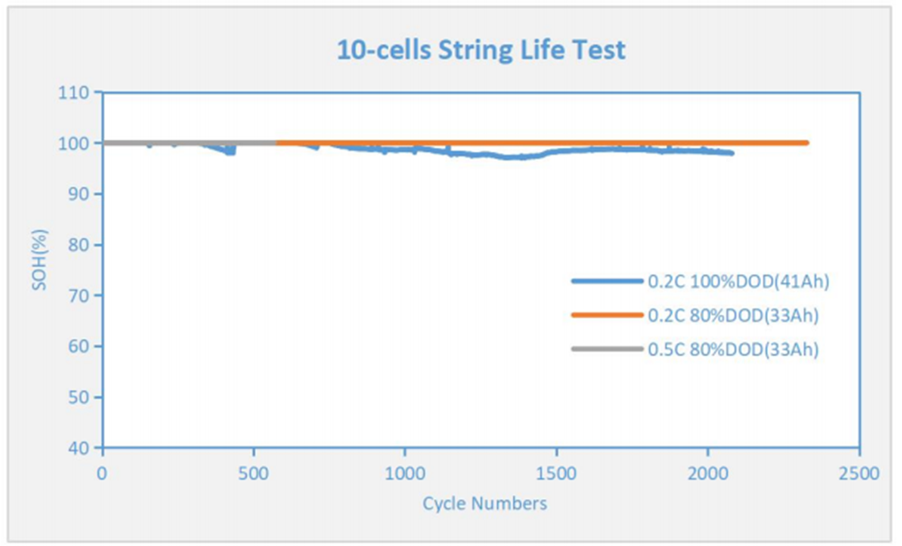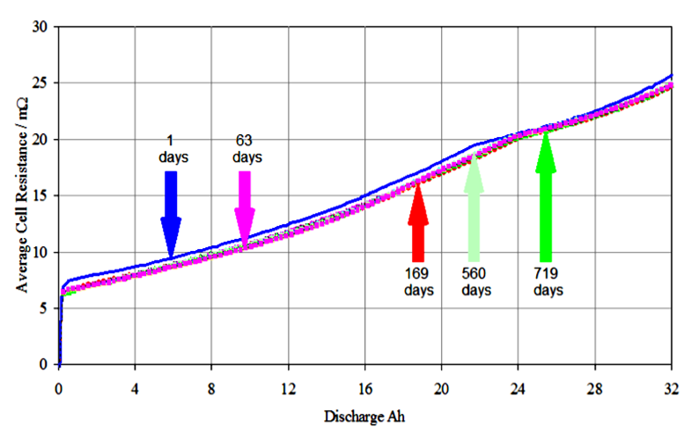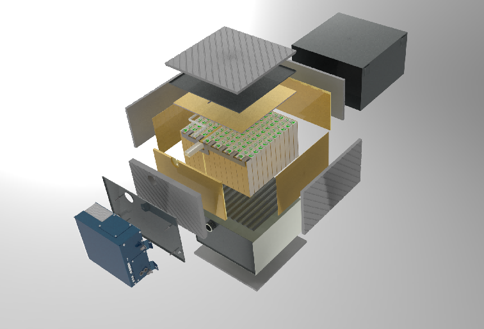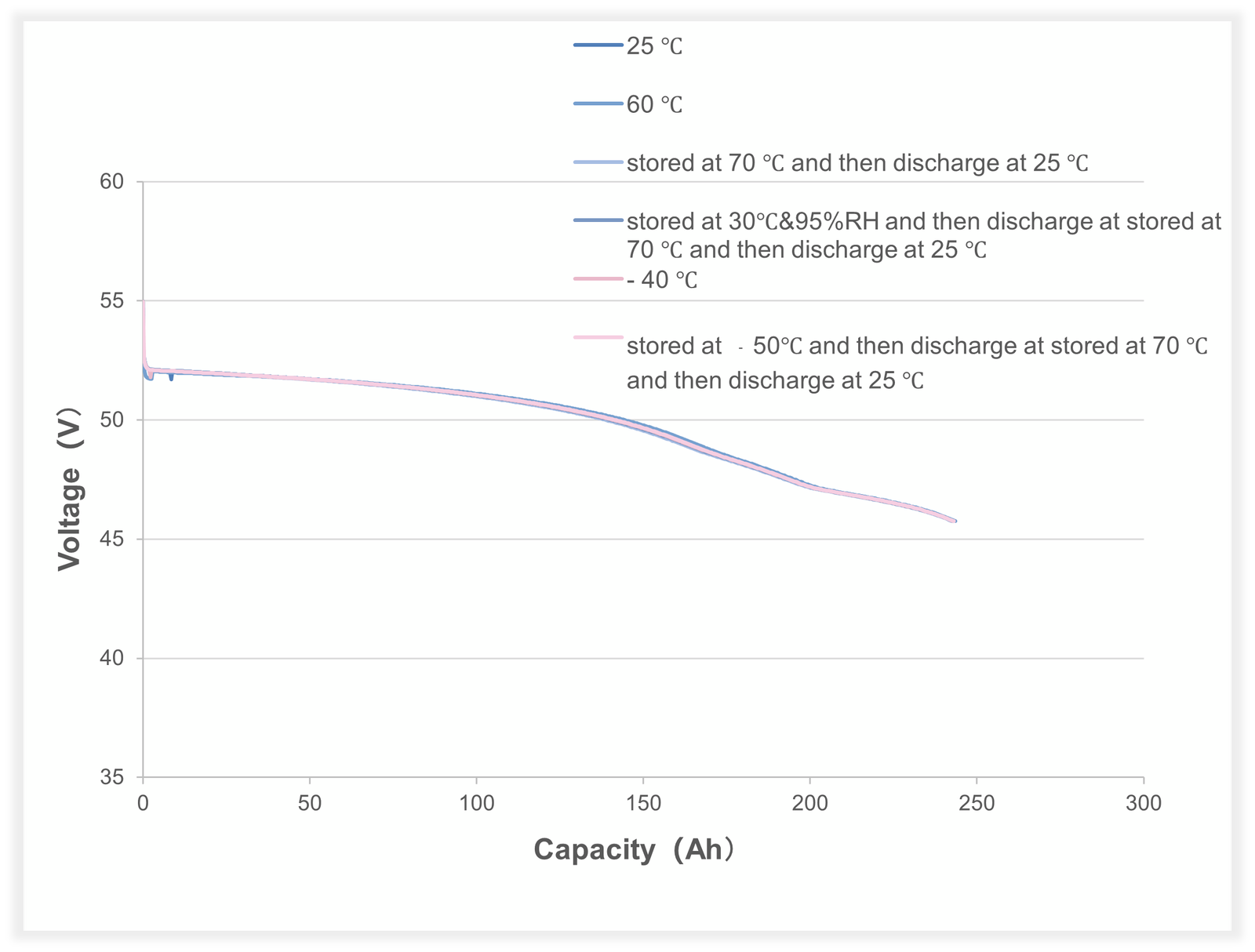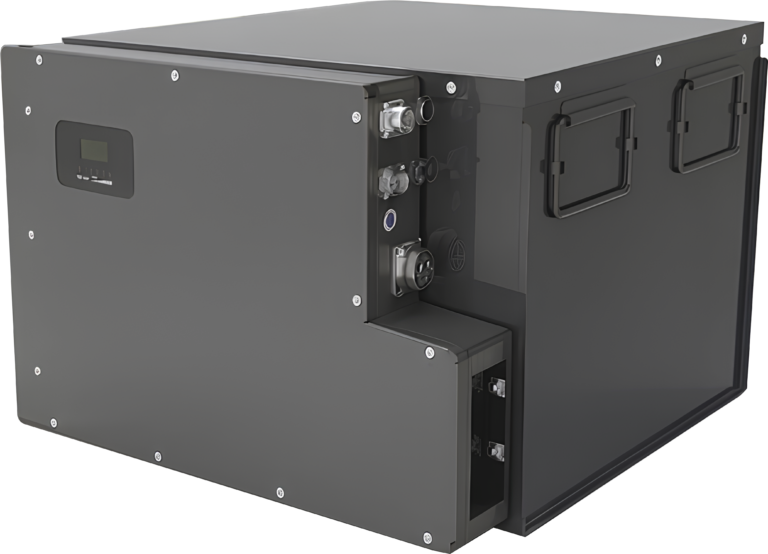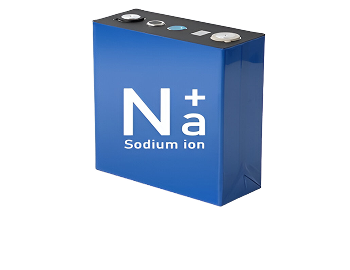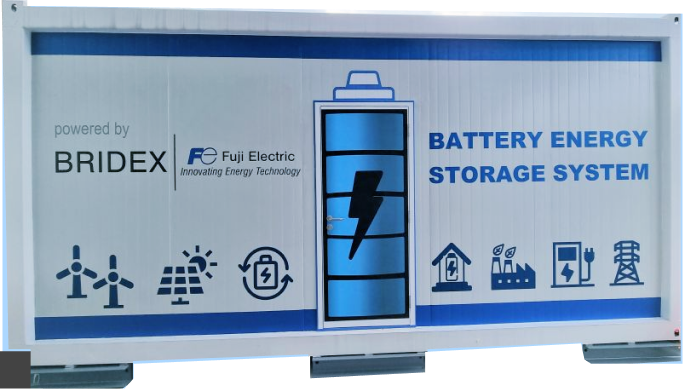Salt Battery (Sodium Metal Chloride)
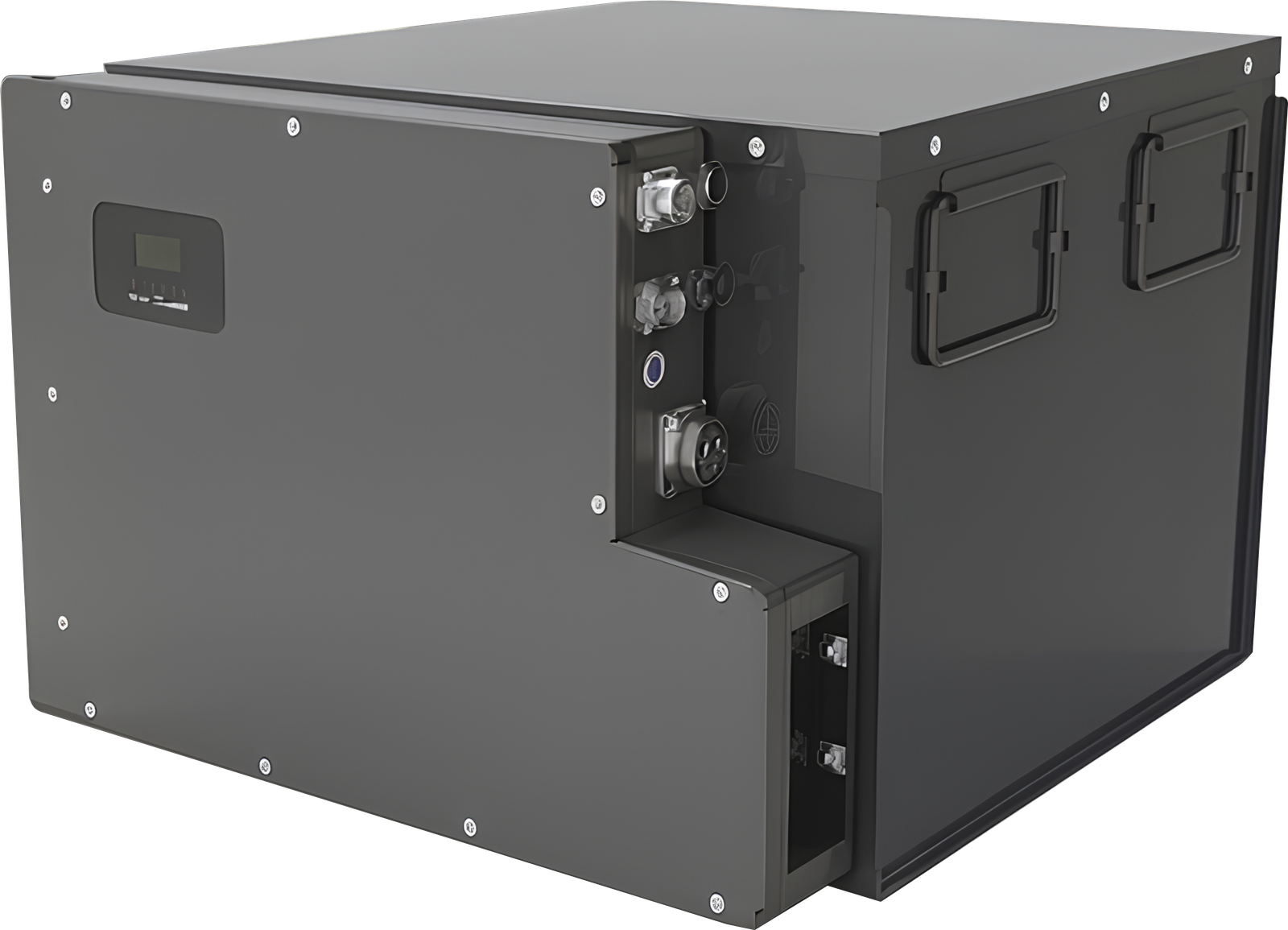
Saltwater Battery
Saltwater batteries have many advantages as a result of their chemistry. Here are a few that have helped make them a potential energy storage technology of the future, including when paired with a solar panel system:
Certified Safe
Non-flammable, non-explosive. CE/UL1973/UL9540A/RoHS certified. ABS/DNV approved.
Long Cycle Life
Float charge life 15~20 years 6000+ cycles @0.5C 80%DOD.
100% Recyclable
The main raw materials are metals and salts, the recycling process is simple. Pollution-free and eco-friendly.
Wide Operating Temperature Range
Batteries operate at ~40°C-65°C ambient temperature with no performance degradation.
High Energy Density
Energy density at cell level: 135 Wh/kg. Energy density at module level: 100 Wh/kg. Smaller footprint.
Maintenance Free
The battery module can tolerate 5%~10% cells short circuit for each string. Fully sealed, zero emissions.
Technical Advantages - Long Life
Cycle Life
Cycle Life Performance - at Varying Loads
- Tested at 25°C, the battery shows a predicted cyce life of > 6000 cydes at 0.5C with > 80% depth of discharge (DOD) and > 80% state of health (SOH).
Floating-Charge Life (15-20 years)
(15-20 years)
- The solid-state salt battery uses B' alumina solid electrolyte with sealed electrodes. Sodium ion redox occurs only when electrically driven, ensuring no self-discharge, no side reactions and 100%. Coulombic efficiency (CE).
- With no organic matter or water, it avoids decomposition or water-splitting, enabling theoretically unlimited foat charge.
